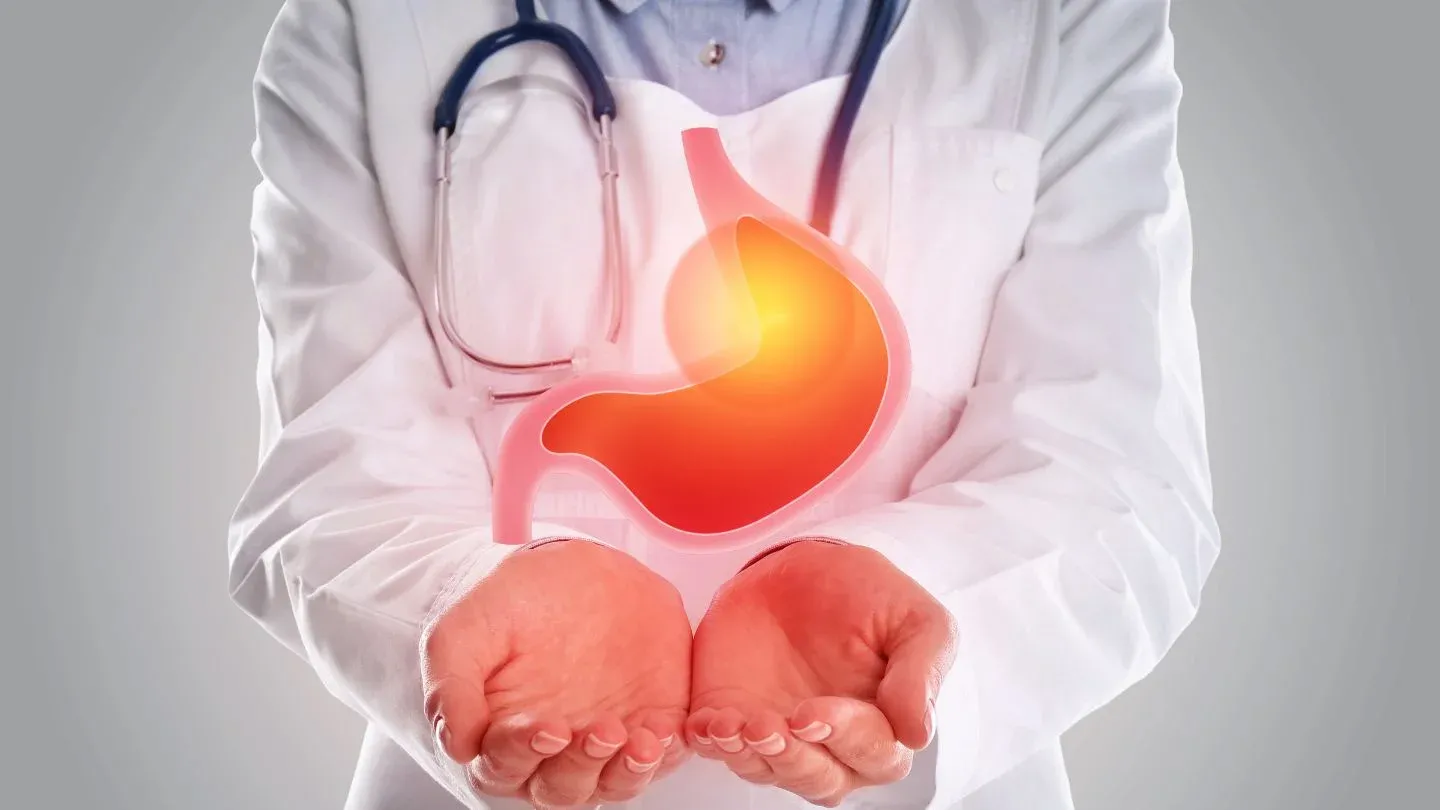
GERD vs. Acid Reflux: Understanding the Differences and Treatment Options
Many people confuse GERD and acid reflux, but understanding the differences and treatment, specifically, “GERD vs Acid Reflux: Understanding the Differences and Treatment,” is essential for effective management. Acid reflux occurs occasionally and can cause heartburn. GERD is a chronic condition with more severe symptoms. In this blog, we’ll explore the differences between GERD and acid reflux, their symptoms, causes, and treatment options, helping you make informed decisions about your health.
Key Takeaways
- Acid reflux occurs when stomach contents flow back into the esophagus due to a malfunctioning lower esophageal sphincter, leading to symptoms like heartburn and difficulty swallowing.
- GERD is a chronic form of acid reflux characterized by frequent symptoms that can significantly affect quality of life and may lead to serious complications if untreated.
- Management of acid reflux and GERD includes lifestyle modifications and medical treatments, with prompt medical attention advised for severe or recurring symptoms.
Understanding Acid Reflux
Acid reflux occurs when the backflow of stomach contents into the esophagus, a tube that connects your throat to your stomach. This occurs when the valve between the stomach and esophagus, known as the lower esophageal sphincter, malfunctions, allowing stomach contents to flow back. When this valve fails to close properly, the acidic contents of the stomach can irritate the lining of the esophagus, leading to the uncomfortable sensation known as heartburn, also known as acid reflux.
Certain foods and beverages can trigger acid reflux by increasing stomach acidity or relaxing the lower esophageal sphincter. Common culprits include citrus fruits, tomato-based foods, onion, garlic, chocolate, high-fat, spicy, or fried foods. Beverages such as coffee, tea, carbonated drinks, and alcohol can contribute to acid reflux. This can lead to discomfort for individuals who consume them.
Recognizing these triggers helps in managing and preventing acid reflux episodes.
Recognizing Symptoms of Acid Reflux

Identifying the heartburn symptoms of acid reflux is essential for effective management. Common symptoms consist of:
- Heartburn, often described as a burning sensation in the chest or throat, which often follows meals and can persist for hours, disrupting daily activities
- Difficulty swallowing
- Chest pain
- A sour or bitter taste in the mouth. Heartburn is the hallmark symptom.
Another symptom to watch out for is acid regurgitation, characterized by the sensation of stomach contents moving back up into the throat. This can leave a bitter taste in the mouth and contribute to a feeling of nausea. Frequent symptoms may suggest a condition beyond occasional acid reflux, potentially indicating GERD.
Read more: The Primary Connection Between Acid Reflux and Sore Throat
What is GERD?
Gastroesophageal reflux disease (GERD) is a chronic condition characterized by frequent acid reflux, occurring at least twice a week. Unlike occasional acid reflux, GERD involves more severe and persistent symptoms that can significantly impact your quality of life. Patients with GERD often report experiencing chest pain, which can be mistaken for heart issues. If left untreated, individuals may develop GERD. Additionally, it is important to describe heartburn to better understand its implications.
In addition to heartburn, GERD sufferers may experience a chronic cough, asthma symptoms, and difficulty swallowing, called heartburn. These symptoms are not just uncomfortable but can lead to more serious complications if left untreated.
For instance, long-term GERD can result in Barrett’s esophagus, a condition where the tissue lining of the esophagus changes and increases the risk of developing esophageal cancer. Comprehending GERD allows for effective management and treatment.
Identifying GERD Symptoms
Recognizing GERD symptoms ensures timely medical intervention. Common symptoms include persistent heartburn, regurgitation, difficulty swallowing, and a burning sensation in the throat. Seek medical attention if heartburn occurs multiple times a week and over-the-counter medications are ineffective.
GERD can also cause noncardiac chest pain, which feels similar to heart-related pain but originates from the esophagus. Additionally, extraesophageal symptoms such as nausea and hoarseness can occur alongside typical GERD symptoms. These symptoms can greatly impact your quality of life, necessitating early diagnosis and treatment.
Causes and Risk Factors for GERD

GERD is primarily caused by mechanical issues that prevent the lower esophageal sphincter from functioning properly. A common cause is a hiatal hernia, where part of the stomach pushes through the diaphragm, increasing the risk of acid reflux. Obesity is another significant risk factor, as excess weight can put pressure on the abdomen, leading to acid reflux. Reducing excess weight can alleviate this pressure, helping to prevent acid reflux.
Certain lifestyle factors, such as smoking and pregnancy, can also exacerbate GERD symptoms. Smoking not only aggravates acid reflux symptoms but also impairs the function of the lower esophageal sphincter. Stopping smoking can enhance this function and reduce stomach acid production. Similarly, hormonal changes during pregnancy can increase the likelihood of experiencing acid reflux.
Diagnosing Acid Reflux and GERD
Diagnosing acid reflux and GERD involves several methods to accurately assess the condition. Doctors may recommend a barium X-ray, endoscopy, or wireless pH monitoring to diagnose these conditions. An upper endoscopy is often used if symptoms persist, allowing doctors to directly observe any potential damage to the esophagus.
Wireless pH monitoring is another diagnostic tool, involving a wireless capsule attached to the lower esophagus that transmits data on acid levels. Accurate diagnosis is essential for effective treatment, guiding the selection of appropriate options based on the condition’s severity and specifics.
Medical Treatments for GERD
When lifestyle changes are not enough, medical treatments for GERD can provide relief. Over-the-counter medications like antacids and H2 blockers can help manage symptoms, but proton pump inhibitors (PPIs) are often more effective. PPIs reduce stomach acid production and can heal the esophageal lining, offering more long-term relief compared to H2 blockers.
For those with more severe GERD, surgical options are available. Procedures like fundoplication involve wrapping the top of the stomach around the lower esophagus to strengthen the sphincter and prevent acid reflux. Endoscopic procedures, though less common, can also be used to treat GERD by sewing the stomach around the esophagus or applying radiofrequency energy to the lower esophageal sphincter.
These medical treatments can significantly improve the quality of life for GERD sufferers, especially when combined with lifestyle changes. A consultation with a healthcare provider can identify the optimal treatment plan tailored to your condition.
Potential Complications of Untreated GERD
Leaving GERD untreated can lead to serious complications. Chronic acid irritation from untreated GERD can cause chronic esophagitis, an inflammation that damages the esophagus. Around 20% of GERD cases may lead to complications if not properly managed.
One of the most severe complications is the development of esophageal cancer. Factors that increase this risk include:
- Obesity
- Being Caucasian
- A history of smoking
- A family history of esophageal cancer
Seeking treatment is vital to prevent these potentially life-threatening complications.
Preventing Acid Reflux and GERD
Preventing acid reflux and GERD involves adopting habits that reduce the likelihood of experiencing symptoms:
- Eating smaller, more frequent meals to facilitate digestion and mitigate heartburn.
- Maintaining an elevated head position while sleeping to help prevent nighttime acid reflux.
- Wearing loose-fitting clothing to alleviate pressure on the stomach, potentially reducing reflux episodes.
- Knowing what to eat with acid reflux, such as non-acidic, low-fat, and easily digestible foods, can also help manage symptoms effectively.
Incorporating these preventive measures into your routine significantly reduces the risk of developing acid reflux and GERD.
When to See a Doctor
Seek treatment from a healthcare provider if you experience heartburn frequently or have severe symptoms of acid reflux or GERD, including chronic acid reflux and acid indigestion. Consult a doctor if symptoms recur and do not improve with over-the-counter treatments for GERD acid reflux.
Symptoms that necessitate medical attention include:
- Frequent heartburn
- Chest pain
- Persistent cough
- Worsening asthma symptoms
- Difficulty swallowing
- Unexplained weight loss
- Common symptom: persistent nausea
If you experience any of these, you should consult a healthcare provider about reflux symptoms.
Read more: How Long Does Acid Reflux Last?
Wrapping It All Up
Understanding the differences between GERD and acid reflux is essential for managing these conditions effectively. While acid reflux is a common issue that many experience occasionally, GERD is a chronic and more severe form that requires medical attention. Recognizing their distinct symptoms and exploring tailored treatment options—from lifestyle changes to medical interventions—is key to achieving relief and improving quality of life.
If you’re struggling with GERD reflux in Baltimore, our team at Ascension Saint Agnes Bariatric Surgery has the expertise to help. Whether through advanced surgical procedures or comprehensive care plans, we are dedicated to providing solutions that promote long-term health and wellness. We also specialize in GERD reflux after sleeve gastrectomy, laparoscopic gallbladder/bile duct surgery, and incisional umbilical hernia surgery. Additionally, we offer a range of weight loss surgeries to help you achieve your health goals. Contact us today to take the first step toward a healthier you!
Frequently Asked Questions
What is the difference between acid reflux and GERD?
Acid reflux is infrequent backflow of stomach contents into the esophagus, whereas GERD is a chronic condition characterized by frequent occurrences that lead to more serious symptoms and potential complications.
What are the common symptoms of acid reflux?
Common symptoms of acid reflux include heartburn, difficulty swallowing, chest pain, and a sour or bitter taste in the mouth. It is important to recognize these signs to seek appropriate treatment.
When should I see a doctor for acid reflux or GERD?
You should consult a doctor for acid reflux or GERD if your symptoms are frequent, severe, or do not improve with over-the-counter treatments, especially if you experience chest pain, a persistent cough, or difficulty swallowing.
What lifestyle changes can help manage acid reflux?
Managing acid reflux can be effectively achieved by avoiding trigger foods, eating smaller meals, quitting smoking, maintaining a healthy weight, and sleeping on an incline. These lifestyle changes can significantly alleviate your symptoms.
How can bariatric surgery help with GERD?
Bariatric surgery can effectively improve GERD symptoms by reducing excess weight, which lessens pressure on the stomach and enhances the function of the lower esophageal sphincter. This can lead to significant relief for those suffering from GERD.